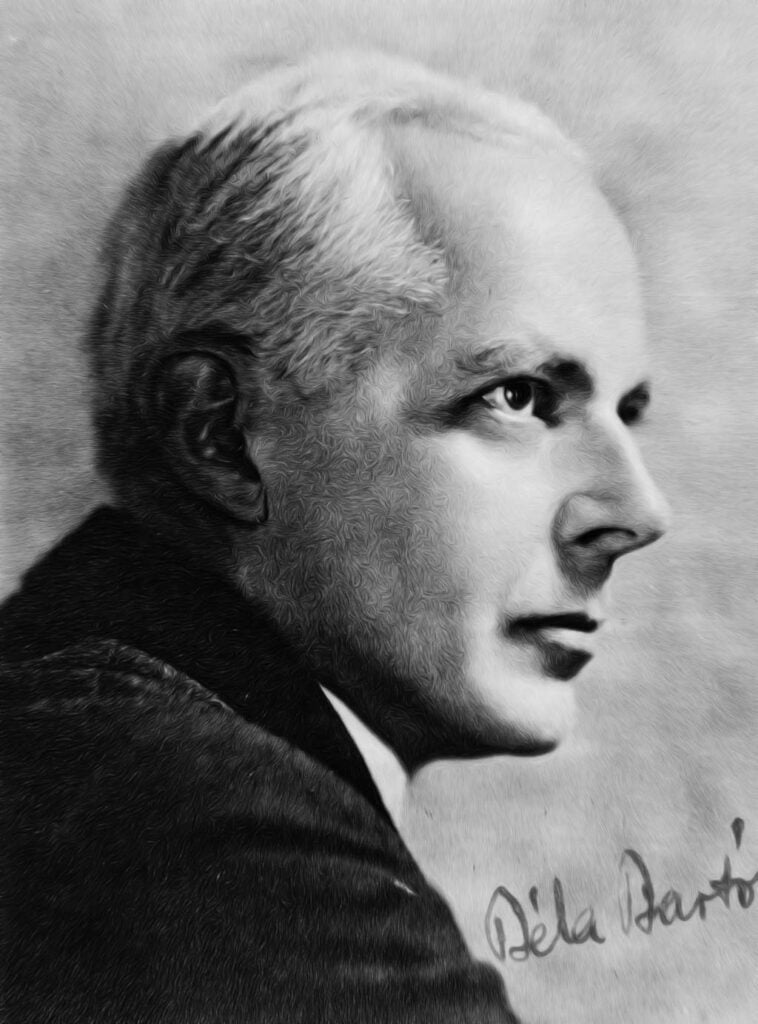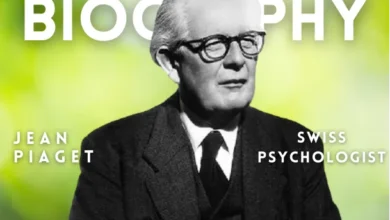Biography
Bela Bartok was a famous Hungarian pianist, composer, and ethnomusicologist. He was born on 25 March 1881 in Nagyszentmiklós, Kingdom of Hungary. He died on 26 September 1945 at the age of 64. He married to Márta Ziegler in the early days of his life. He started early education in his hometown and completed musical education at Royal Academy of Music in Budapest.
Bartok major contributions are the Collection and analytical study of folk music, contributing to the field of ethnomusicology, Distinctive compositional style blending folk elements with modernist techniques, Compositions such as “Concerto for Orchestra,” “Mikrokosmos,” and “Music for Strings, Percussion and Celesta”.
Quick Facts
| Aspect | Details |
|---|---|
| Full Name | Béla Viktor János Bartók |
| Date of Birth | March 25, 1881 |
| Place of Birth | Nagyszentmiklós, Kingdom of Hungary (present-day Sânnicolau Mare, Romania) |
| Parents | Father: Béla Bartók; Mother: Paula Bartók (née Voit) |
| Siblings | Sister: Erzsébet |
| Early Musical Talent | Displayed exceptional musical ability from a young age; could distinguish between different dance rhythms before learning to speak in complete sentences |
| Education | Studied music at the Royal Academy of Music in Budapest |
| Marital Status | Married to Márta Ziegler |
| Children | No available information |
| Profession | Composer, pianist, and ethnomusicologist |
| Notable Works | – “Concerto for Orchestra” – “Romanian Folk Dances” – “Mikrokosmos” – “Bluebeard’s Castle” – “Music for Strings, Percussion and Celesta” – “The Miraculous Mandarin” |
| Awards and Honors | – Kossuth Prize (1943) – Order of the Flag of the Hungarian People’s Republic (1948) – Légion d’honneur (1926) |
| Death | September 26, 1945 (aged 64) |
| Legacy | Considered one of the most important composers of the 20th century; regarded alongside Franz Liszt as one of Hungary’s greatest composers |
| Musical Style | Known for blending elements of Hungarian and Eastern European folk music with modernist compositional techniques; characterized by rhythmic vitality, dissonance, and rich harmonies |

Béla Bartók’s Compositions
| Composition | Genre |
|---|---|
| Concerto for Orchestra | Orchestral |
| Romanian Folk Dances | Solo piano |
| Mikrokosmos | Piano |
| Bluebeard’s Castle | Opera |
| Music for Strings, Percussion and Celesta | Orchestral |
| The Miraculous Mandarin | Ballet |
| Viola Concerto | Concerto |
| Piano Concerto No. 3 | Concerto |
| Violin Concerto No. 2 | Concerto |
| Contrasts | Chamber |
| 44 Duos for Two Violins | Chamber |
| Allegro barbaro | Solo piano |
| Divertimento for String Orchestra | Orchestral |
| Sonata for Solo Violin | Solo violin |
| The Wooden Prince | Ballet |
| Piano Concerto No. 2 | Concerto |
| String Quartet No. 4 | Chamber |
| Kossuth | Orchestral |
| String Quartet No. 1 | Chamber |
| Dance Suite | Orchestral |
| Piano Sonata | Solo piano |
| Rhapsody No. 1 | Solo piano |
| Piano Concerto No. 1 | Concerto |
| Sonata for Two Pianos and Percussion | Chamber |
| Violin Concerto No. 1 | Concerto |
| Sonatina | Solo piano |
| Suite, Op. 14 | Orchestral |
| String Quartet No. 6 | Chamber |
| String Quartet No. 2 | Chamber |
| String Quartet No. 3 | Chamber |
| 14 Bagatelles | Solo piano |
| String Quartet No. 5 | Chamber |
| Cantata Profana | Choral |
| Hungarian Pictures | Solo piano |
| Fifteen Hungarian Peasant Songs | Voice with piano accompaniment |
| An Evening at the Village | Solo piano |
| Ten Easy Pieces, Sz. 39, BB 51 | Solo piano |
| Maruntel | Solo piano |
| Buciumeana | Solo piano |
| Twenty Hungarian Folksongs | Solo piano |
| Romanian Christmas Carols | Voice with piano accompaniment |
| The Barbarian | Solo piano |
| Études de Bartók | Solo piano |
| Sonate pour violon et piano no 1 de Bartók | Chamber |
| Nine Little Piano Pieces | Solo piano |
| Two Romanian Dances | Solo piano |
| Slovakian Dance | Solo piano |
| Piano Method (Zongoraiskola), BB 66, Sz. 52 | Instructional |
| Rhapsody for Piano and Orchestra, BB 36b (op. 1) | Orchestral |
| Two Pictures: I. In voller Blüte | Solo piano |
| Hungarian Folk Tunes: III. | Solo piano |
FAQs about Bela Bartok Biography
What is the full name of Béla Bartók?
Full name of Béla Bartók: Béla Viktor János Bartók
What is the profession of Béla Bartók?
Profession of Béla Bartók: Composer, pianist, and ethnomusicologist
What is the age of Béla Bartók?
Age of Béla Bartók (at the time of death): He was born on March 25, 1881, and died on September 26, 1945, making him 64 years old at the time of his death.
What is the height of Béla Bartók?
Height of Béla Bartók: There is no available information regarding his height.
What is the weight of Béla Bartók?
Weight of Béla Bartók: There is no available information regarding his weight.
Who is Béla Bartók’s spouse?
Spouse of Béla Bartók: He was married to Márta Ziegler.
Who are Béla Bartók’s parents?
Parents of Béla Bartók: His father was Béla Bartók, and his mother was Paula Bartók (née Voit).
Who are Béla Bartók’s siblings?
Siblings of Béla Bartók: He had a sister named Erzsébet.
What is the net worth of Béla Bartók?
Net worth of Béla Bartók: There is no available information regarding his net worth.
What is the education of Béla Bartók?
Education of Béla Bartók: He studied music at the Royal Academy of Music in Budapest.
What are the major awards Béla Bartók received?
Major awards received by Béla Bartók: Some of the major awards Bartók received include the Kossuth Prize (1943), the Order of the Flag of the Hungarian People’s Republic (1948), and the Légion d’honneur (1926).





